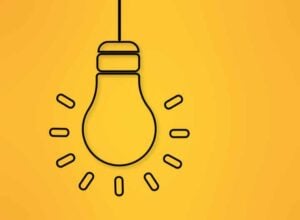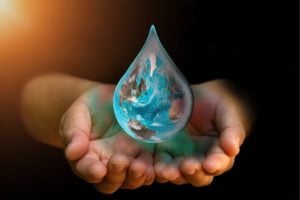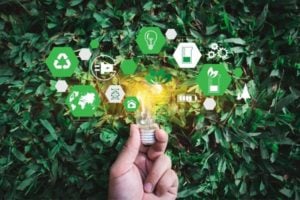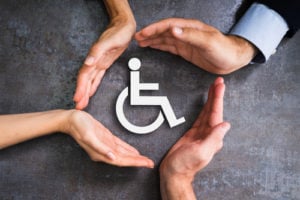As the impacts of climate change become increasingly evident, the need for climate-resilient water systems has never been more pressing. These systems are designed to withstand and adapt to the changing climate, ensuring that communities have access to safe and reliable water sources even in the face of extreme weather events, rising temperatures, and shifting precipitation patterns. The importance of developing such systems cannot be overstated, as they play a critical role in safeguarding public health, supporting economic stability, and preserving ecosystems.
Climate-resilient water systems encompass a range of strategies and technologies aimed at enhancing the robustness of water supply and management. This includes everything from improving infrastructure to implementing innovative water conservation practices. As businesses and organizations seek funding to develop these systems, crafting a compelling grant proposal becomes essential.
A well-structured proposal not only highlights the urgency of the project but also demonstrates its potential impact on communities and the environment. In this article, we will explore key components of successful proposals for climate-resilient water systems, providing actionable tips and real-world examples to guide organizations in their efforts.
Key Components of a Proposal for Climate-Resilient Water Systems
When drafting a grant proposal for climate-resilient water systems, it is crucial to include several key components that will resonate with potential funders. First and foremost, a clear statement of need is essential. This section should articulate the specific challenges faced by the community regarding water supply and quality, particularly in relation to climate change.
For instance, if a region is experiencing increased flooding that contaminates local water sources, this should be highlighted as a pressing issue that necessitates immediate action. In addition to outlining the need, the proposal should present a well-defined project plan that details the objectives, methodologies, and expected outcomes. This plan should be grounded in evidence-based practices and demonstrate how the proposed solutions will effectively address the identified challenges.
For example, if a community aims to implement rainwater harvesting systems to mitigate flooding risks, the proposal should outline how these systems will be designed, installed, and maintained. Furthermore, including timelines and milestones can help funders visualize the project’s progression and assess its feasibility.
Incorporating Climate Data and Projections
Integrating climate data and projections into grant proposals is vital for demonstrating the urgency and relevance of proposed projects. By utilizing credible data sources such as the Intergovernmental Panel on Climate Change (IPCC) reports or local climate assessments, organizations can provide a solid foundation for their arguments. This data can illustrate trends in temperature changes, precipitation patterns, and extreme weather events that directly impact water resources.
Moreover, it is beneficial to include localized projections that reflect how climate change will specifically affect the community in question. For instance, if a region is projected to experience more frequent droughts, this information can be used to justify investments in water conservation technologies or infrastructure improvements. By grounding proposals in robust climate data, organizations can effectively convey the necessity of their projects and enhance their chances of securing funding.
Strategies for Adaptation and Mitigation
A successful grant proposal should not only identify problems but also propose actionable strategies for adaptation and mitigation. These strategies can take various forms, including technological innovations, policy changes, and community engagement initiatives. For example, implementing smart irrigation systems that optimize water usage based on real-time weather data can significantly reduce water waste while ensuring agricultural productivity.
Additionally, fostering community involvement is crucial for the long-term success of climate-resilient water systems. Engaging local stakeholders in the planning process can lead to more effective solutions that are tailored to the specific needs of the community. For instance, organizing workshops or focus groups can help gather input from residents about their experiences with water scarcity or flooding.
This collaborative approach not only builds trust but also empowers communities to take ownership of their water resources.
Cost-Benefit Analysis and Financing Options
A comprehensive cost-benefit analysis is an essential component of any grant proposal for climate-resilient water systems. Funders want to see that their investment will yield significant returns in terms of social, economic, and environmental benefits. Organizations should clearly outline both the upfront costs associated with implementing proposed solutions and the long-term savings or benefits that will result from these investments.
In addition to presenting a thorough cost-benefit analysis, it is important to explore various financing options available for climate-resilient projects. This may include government grants, private foundations, public-private partnerships, or even crowdfunding initiatives. By diversifying funding sources and demonstrating a commitment to financial sustainability, organizations can enhance their proposals’ attractiveness to potential funders.
For example, a municipality seeking funding for a new water treatment facility might explore state-level grants while also considering partnerships with local businesses that could benefit from improved water quality.
Conclusion and Next Steps
In conclusion, developing climate-resilient water systems is an urgent priority for communities facing the challenges posed by climate change. Crafting a compelling grant proposal is essential for securing funding to support these initiatives. By focusing on key components such as articulating the need for action, incorporating climate data, proposing actionable strategies, conducting thorough cost-benefit analyses, and exploring diverse financing options, organizations can significantly enhance their chances of success.
As organizations prepare to embark on this journey, it is crucial to remain adaptable and open to feedback throughout the proposal development process. Engaging with stakeholders early on can provide valuable insights that strengthen proposals and foster collaboration among community members. Additionally, staying informed about emerging trends in climate resilience and water management will ensure that proposals remain relevant and impactful.
Ultimately, by taking these actionable steps and leveraging real-world examples of successful projects, organizations can contribute to building a more sustainable future for their communities through climate-resilient water systems. The time for action is now; with thoughtful planning and strategic execution, we can create a world where access to clean and reliable water is guaranteed for generations to come.























